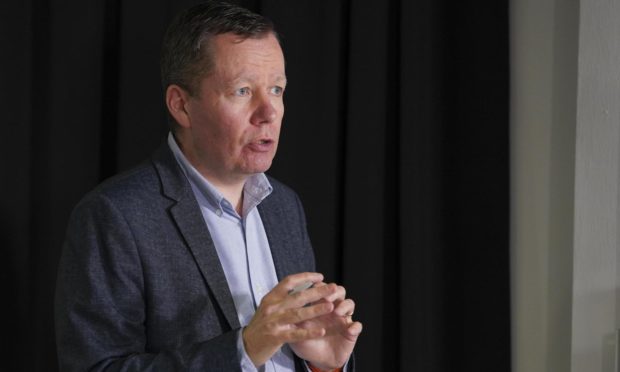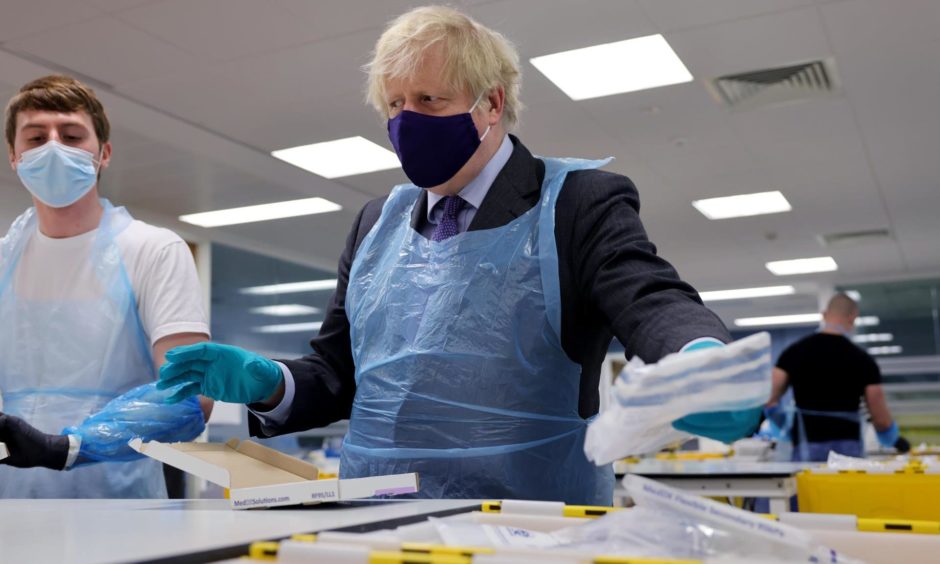Nicola Sturgeon will outline her road map out of lockdown later today, a day after the prime minister unveiled his four-stage plan.
Boris Johnson’s plan could mean the bulk of Covid restrictions, which have been a feature of everyday life for almost a year, abolished in England by June 21.
Today, Ms Sturgeon will update Holyrood on the Scottish Government’s plans to ease lockdown, and while she has said there may be similarities to Westminster she has stressed decisions will be based on data and case numbers rather than working to specific dates.
National clinical director Jason Leitch told BBC’s Good Morning Scotland that the opening up with be “gradual” and “staged”.
Speaking earlier this morning, the professor said: “It will be families first and then getting back to some sort of social normality, then it’s about the economic recovery.
“There will be, of course, weeks with gaps.
Boris Johnson says ‘seasons of hope’ are approaching as he sets out lockdown road map
- The plan could see the bulk of Covid restrictions abolished in England by June 21
- Approach to be driven by “data, not dates”
“I think there will be talk about the gateway to the next stage, but I don’t think we will get ‘all bets are off by these dates'”.
When asked if he believes travel will be possible this year, Mr Leitch said he hoped so, even if just domestically – pointing out that it was harder to control what was going on in other countries and in that travel corridor.
“I think it’s possible,” he said. “Vaccination has gone incredibly well in the UK. It’s not gone quite as well in other countries and we have got to be careful about that.
“In 2021, I think there could be huge amounts of domestic normality as long as two things stay true. Vaccinations must be used wisely, and we must get a grip on the importation of new virus strains. If we want to get back to normal, we need to stop it coming back.”
Mr Leitch said that he thought some international travel may be possible, depending on prevalence of cases.
“I can imagine a world where it’s low prevalence here and it’s low prevalence in Norway, so travel between them is allowed – just like Australia and New Zealand,” he added.
While vaccinations will play a part in easing travel restrictions, he acknowledged that some people cannot receive the jab and others will choose not to get it, and that authorities must be “careful” not to discriminate against them.
Asked if he believed coronavirus will become an illness we live with, like the flu, Mr Leitch said it was a difficult comparison given the difference in deaths.
He said that choices were made about the flu, such as not asking people to wear masks or socially distance during flu season, and it is accepted around 9,000 people die from it in the UK a year.
“Covid has killed 120,000 people – that’s three times as many,” he said.
“At some point, the whole world decided coronavirus was something special and we needed to take action. Vaccination and treatment makes it not so special, yes. The difficulty is knowing when that is and at what level (of cases).
“Right now, the aim for any country is to get that number as low as possible and keep it there. That’s how we get back to normality.”
Bo-Jo’s big plan
Boris Johnson unveiled his four-point plan to lift lockdown measures in England yesterday and hinted that normality could be restored by the summer.
A string of key target dates include the reopening of schools March 8 and shops, hairdressers and pubs opening from April 12 at the earliest.
However, the date that sticks out most is June 21, as Mr Johnson said he hoped all curbs on social contact could be lifted, with the remaining elements of the hospitality sector – such as nightclubs – allowed to open.
Significantly, the stay-at-home order will end and messaging will shift to “stay local”.
Alongside the four-step plan, the prime minister launched a series of reviews, including on the Covid status certificates.
Officials acknowledged that there are moral and ethical questions, as well as practical ones, for any such move.

